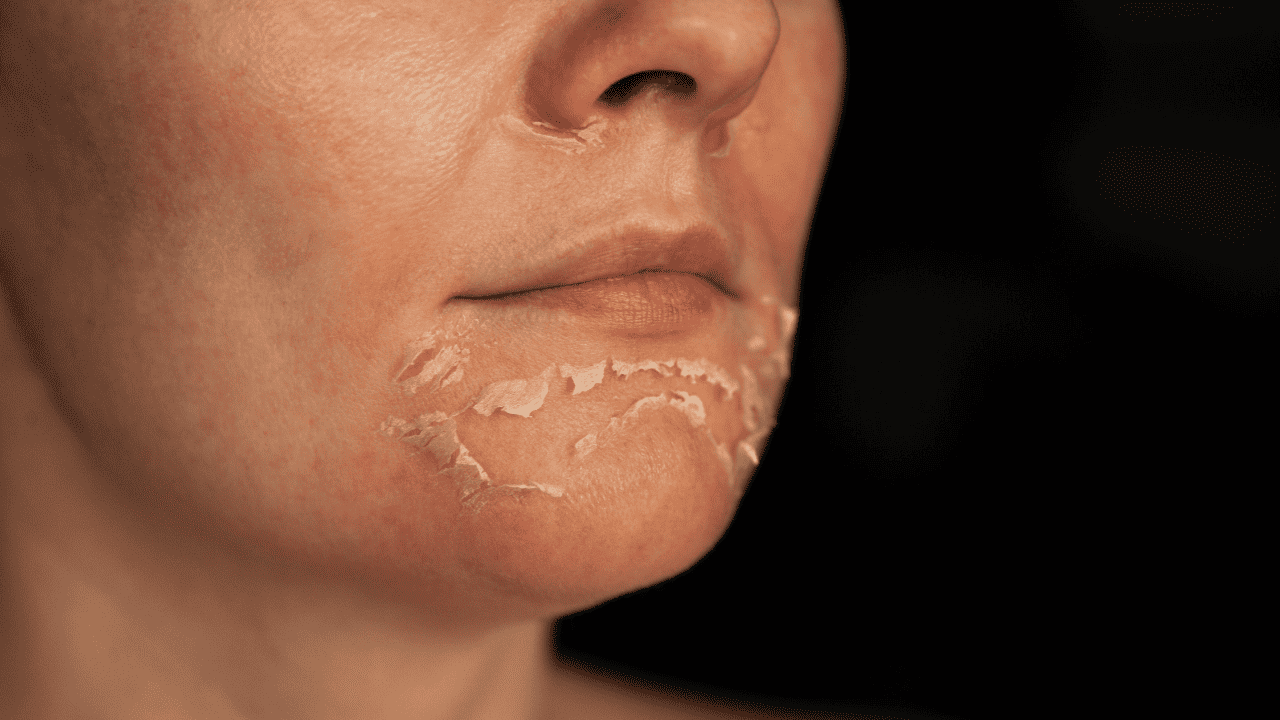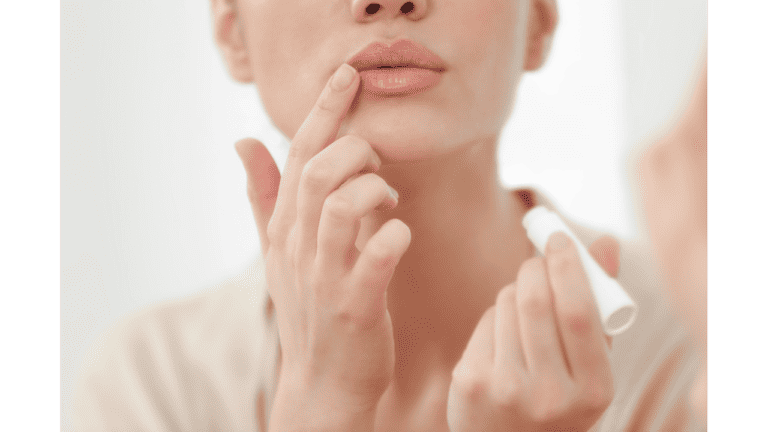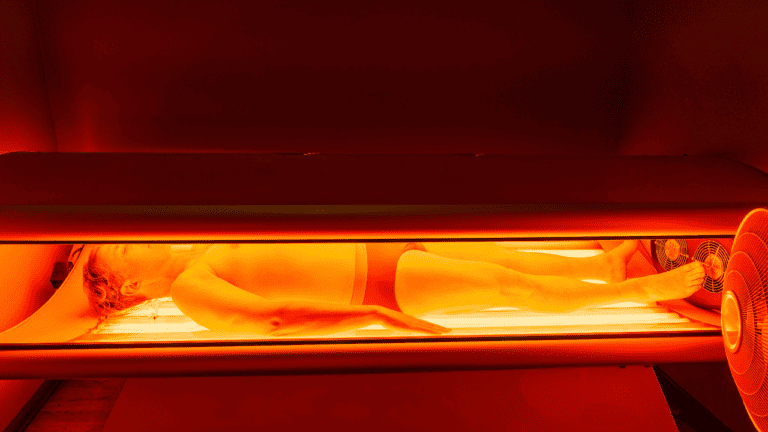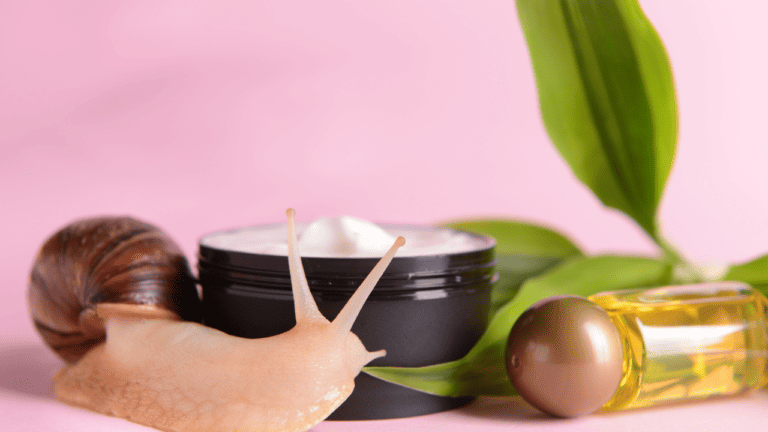Have you ever followed your skincare routine only to find your skin peeling off like a snake shedding its skin? It’s a frustrating and often alarming experience. We are here to demystify why this happens and how you can prevent it. Let’s dive in!

Key Takeaways
- Skin Peeling is Often a Natural Process: Peeling can be a part of the skin’s natural renewal cycle, but excessive peeling is usually a sign of irritation or damage.
- Over-Exfoliation is a Common Culprit: Using exfoliating products too frequently or in high concentrations can damage the skin’s protective barrier, leading to peeling.
- Harsh Ingredients Require Caution: Ingredients like retinoids and acids are effective but can cause irritation if not used properly.
- Allergic Reactions Can Cause Peeling: Introducing new products to your skincare routine can sometimes lead to allergic reactions, evident as skin peeling.
- Environmental Factors Play a Role: External factors such as weather changes and sun exposure can dry out the skin and cause peeling.
Overview of Skin Peeling

Skin peeling, also known as desquamation, is a natural process where the outermost layer of skin sheds. Usually, it’s an invisible process, but certain factors, especially in your skincare routine, can accelerate it, making it noticeable.
Common Causes of Skin Peeling
Over-Exfoliation
Exfoliation is key to glowing skin, but there’s such a thing as too much. Over-exfoliating can strip the skin of its natural oils, leading to a compromised skin barrier and peeling.
Harsh Skincare Ingredients
Some skincare heroes like retinoids and acids can be villains if not used correctly. These powerful ingredients are effective but can cause irritation and peeling, especially in higher concentrations or when used too frequently.
Allergic Reactions

Sometimes, the skin peels because it’s reacting to an ingredient it doesn’t like. If you’ve introduced a new product into your routine and notice peeling soon after, it could be an allergic reaction.
- Read similar post: Effective Remedies For Treating Chemical Burns On Face Caused By Skincare Products
Environmental Factors
External elements like sunburn or cold weather can also cause your skin to peel. They can dry out and damage the skin, leading to peeling as the skin tries to repair itself.
Identifying Your Trigger
The first step to stopping the peel is figuring out what’s causing it. Look at your skincare products, your routine, and even the weather. Patch testing new products can be a skin-saver!
Remedies and Prevention

Adjusting Your Skincare Routine
Listen to your skin. If it’s peeling, it might be time to dial back on exfoliation or potent ingredients. Sometimes, less is more when it comes to skincare.
Soothing Treatments
Incorporate soothing and hydrating ingredients like hyaluronic acid and aloe vera into your routine. These can help calm down your skin and promote healing.
When to See a Professional
If your skin continues to peel despite making changes, it’s time to consult a dermatologist. Persistent peeling may be a sign of an underlying condition that requires professional attention.
Conclusion
Peeling skin after your skincare routine can be a sign that something is off. By understanding the causes and learning how to respond, you can keep your skin happy and healthy. Remember, skincare is a journey, and your skin will always appreciate a gentle, patient approach.
Frequently Asked Questions (FAQs)
How can I tell if my skin is peeling from over-exfoliation or an allergic reaction?
Over-exfoliation typically leads to redness, sensitivity, and peeling mainly in areas where you use exfoliating products. An allergic reaction might also include itching, a rash, or peeling soon after introducing a new product.
Are there any specific ingredients I should avoid to prevent peeling?
It depends on your skin type, but generally, strong acids (like glycolic acid), retinoids, and alcohol-based products can be harsh and cause peeling. Always patch test new products.
Can changing my diet affect skin peeling?
Yes, your diet can impact your skin’s health. A balanced diet rich in vitamins, antioxidants, and hydration can support skin health and reduce peeling.
How often should I exfoliate to prevent skin peeling?
This varies, but a general guideline for physical or chemical exfoliation is 1-2 times per week, depending on your skin’s sensitivity and the products used.






